Zidovir 100mg
Zidovir 100mg contains Zidovudine, an antiretroviral medication used to treat HIV/AIDS. It belongs to the nucleoside reverse transcriptase inhibitor (NRTI) class, which helps reduce the virus’s ability to multiply in the body. Zidovir is often prescribed as part of combination therapy to improve immune function and lower viral load.
The usual dosage depends on the patient’s condition and medical history. Side effects may include nausea, fatigue, headache, and anemia. Regular blood tests are necessary to monitor health while on Zidovir. It is not a cure for HIV but helps manage the infection effectively.
Uses
- HIV Treatment – Zidovir (Zidovudine) is used in combination with other antiretroviral drugs to manage HIV infection by reducing viral replication.
- Prevention of Mother-to-Child Transmission (PMTCT) – It is prescribed during pregnancy and childbirth to lower the risk of transmitting HIV to the baby.
- Post-Exposure Prophylaxis (PEP) – Zidovir is sometimes included in PEP regimens to prevent HIV infection after exposure.
How to Use Zidovir 100 mg?
- Dosage – Take Zidovir exactly as prescribed by your doctor. The usual dose depends on your medical condition and weight.
- Timing – Take it at evenly spaced intervals to maintain a constant level in your blood.
- With or Without Food – You can take Zidovir with or without food, but taking it with food may help reduce stomach discomfort.
- Swallow Whole – Do not crush, chew, or break the tablet; swallow it with water.
- Missed Dose – If you miss a dose, take it as soon as you remember. If it’s close to your next dose, skip the missed one.
- Do Not Stop Suddenly – Stopping Zidovir without medical advice can worsen your condition.
How Zidovir 100 mg Works ?
Zidovir 100 mg contains Zidovudine, an antiretroviral drug from the nucleoside reverse transcriptase inhibitor (NRTI) class. It works by:
- Blocking Reverse Transcriptase – HIV uses an enzyme called reverse transcriptase to replicate inside human cells. Zidovir inhibits this enzyme, preventing the virus from making copies of itself.
- Reducing Viral Load – By stopping HIV replication, Zidovir lowers the amount of virus in the blood, helping slow disease progression.
- Boosting Immunity – With lower HIV levels, the immune system can function better, reducing the risk of infections and complications.
Dosage
The dosage of Zidovir (Zidovudine) 100 mg depends on the patient’s age, weight, and medical condition. Below are general guidelines:
1. HIV Treatment
🔹 Dose: 100–200 mg every 6 to 8 hours (or as prescribed)
🔹 Maximum Daily Dose: 500–600 mg in divided doses
2. Prevention of Mother-to-Child Transmission (PMTCT)
- Pregnancy: 100 mg five times daily from week 14 until delivery
- Labor: Given intravenously to the mother
- Newborns: 2 mg/kg every 6 hours for 6 weeks
3. Post-Exposure Prophylaxis (PEP)
Dose: 100–300 mg every 8–12 hours, combined with other antiretroviral drugs
🔹 Duration: 28 days
Benefits
- Suppresses HIV Replication – Zidovir (Zidovudine) blocks the HIV virus from multiplying, helping to slow disease progression.
- Reduces Viral Load – By lowering the amount of virus in the blood, it helps improve overall health.
- Boosts Immune System – Helps the body fight infections by preventing further damage to the immune system.
- Prevents Mother-to-Child Transmission (PMTCT) – Significantly lowers the risk of HIV transmission from mother to baby during pregnancy and childbirth.
- Used in PEP (Post-Exposure Prophylaxis) – Helps prevent HIV infection after accidental exposure, such as needle injuries.
- Delays AIDS Progression – Slows the development of HIV-related complications, improving life expectancy.
Side Effects
While Zidovir (Zidovudine) can be effective, it may cause side effects. Common and serious side effects include:
Common Side Effects:
- Nausea
- Headache
- Fatigue or Weakness
- Loss of Appetite
- Dizziness
Serious Side Effects:
- Anemia (Low Red Blood Cell Count) – May cause fatigue, weakness, and pale skin.
- Low White Blood Cell Count (Neutropenia) – Increases the risk of infections.
- Liver Problems – Symptoms may include jaundice (yellowing of the skin or eyes), dark urine, and pain in the upper right abdomen.
- Muscle Pain or Weakness – Can be a sign of a condition called myopathy.
- Lactic Acidosis – A rare but serious condition with symptoms like rapid breathing, nausea, and abdominal pain.
- Pancreatitis – Inflammation of the pancreas, causing severe abdominal pain, nausea, and vomiting.
Precautions
Before starting Zidovir (Zidovudine), take the following precautions to ensure safe use:
- Allergic Reactions – Inform your doctor if you have a known allergy to Zidovir or any other components of the medication.
- Liver Issues – Zidovir can affect liver function. If you have a history of liver disease (e.g., hepatitis), your doctor may monitor your liver function regularly.
- Kidney Function – If you have kidney problems, your doctor may adjust your dose and monitor kidney function closely.
- Blood Disorders – Zidovir can cause low blood cell counts (anemia, neutropenia). If you have a history of blood disorders, inform your doctor, as you may need blood tests.
- Pregnancy and Breastfeeding – Zidovir is sometimes used during pregnancy to prevent mother-to-child HIV transmission. However, it should only be used if prescribed by a doctor. It passes into breast milk, so breastfeeding may not be recommended if you have HIV.
- Drug Interactions – Zidovir may interact with other medications, including other antiretrovirals, certain antibiotics, and other drugs that affect the liver. Inform your doctor about all the medications you’re taking, including over-the-counter drugs and supplements.
- Regular Monitoring – Regular blood tests are essential to monitor the drug’s effects on your liver, blood cells, and overall health.
- Avoid Alcohol – Alcohol may increase the risk of side effects such as liver damage or dizziness.
- Follow Instructions Carefully – Take Zidovir as prescribed and don’t skip doses to avoid resistance and ensure its effectiveness.
Frequently Asked Questions
What is Zidovir 100mg used for?
Zidovir (Zidovudine) is used to treat HIV/AIDS, prevent mother-to-child transmission of HIV, and in some cases, as part of post-exposure prophylaxis (PEP) to prevent HIV after potential exposure.
How should I take Zidovir 100mg ?
Take Zidovir exactly as prescribed by your doctor. It is usually taken every 6–8 hours with or without food. Swallow the tablet whole with a glass of water. Never crush or chew it.
Can Zidovir 100mg cure HIV?
No, Zidovir does not cure HIV. It helps manage the infection, reduce viral load, and improve immune function when used as part of combination therapy.
Can I stop taking Zidovir 100mg once I feel better?
No, you should not stop Zidovir without consulting your doctor. Stopping it suddenly can lead to drug resistance and worsen your condition. It is essential to take it consistently.
What are the common side effects of Zidovir?
Common side effects include nausea, headache, fatigue, and loss of appetite. If side effects persist or worsen, contact your healthcare provider.
How does Zidovir 100mg work?
Zidovir works by inhibiting the reverse transcriptase enzyme in HIV, stopping the virus from replicating and lowering the viral load in the body.
Can Zidovir 100mg be used during pregnancy?
Zidovir can be used during pregnancy to prevent mother-to-child transmission of HIV. However, it should only be used under the supervision of a healthcare provider.
What should I do if I miss a dose?
If you miss a dose of Zidovir, take it as soon as you remember, unless it is nearly time for your next dose. Do not take two doses at once to make up for a missed dose.
Can Zidovir interact with other medications?
Yes, Zidovir may interact with other medications, especially those that affect the liver or other antiretrovirals. Always inform your doctor of any other medications or supplements you’re taking.
Is it safe to drink alcohol while taking Zidovir?
It is best to avoid alcohol while taking Zidovir, as it may increase the risk of side effects like liver damage or dizziness.
Conclusion
Zidovir 100 mg is an effective medication for managing HIV/AIDS, preventing mother-to-child transmission, and post-exposure prevention. When taken as prescribed, it helps reduce viral load and supports immune health. However, it may cause side effects and requires regular monitoring.

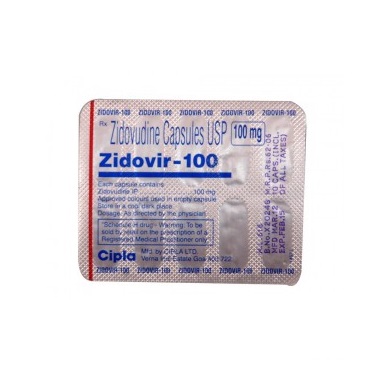
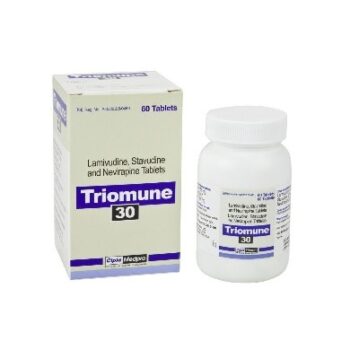
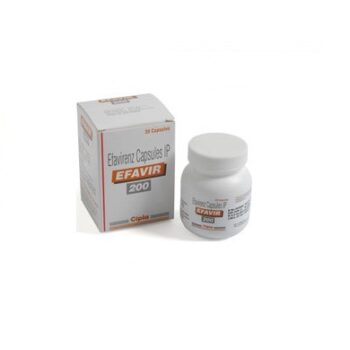

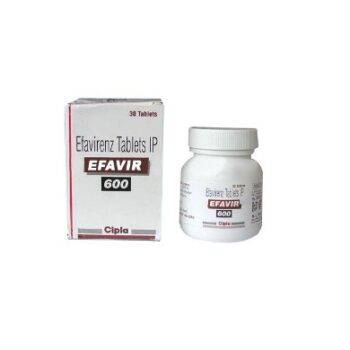

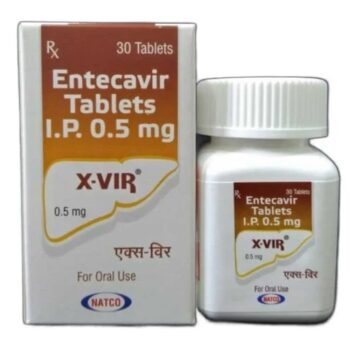
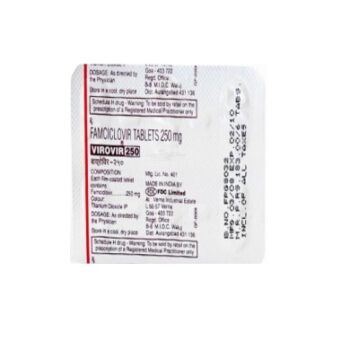


Reviews
There are no reviews yet.